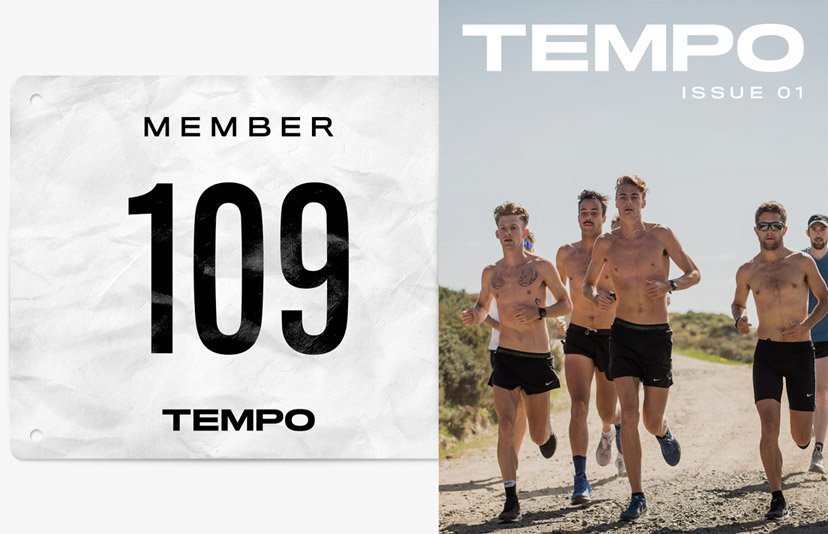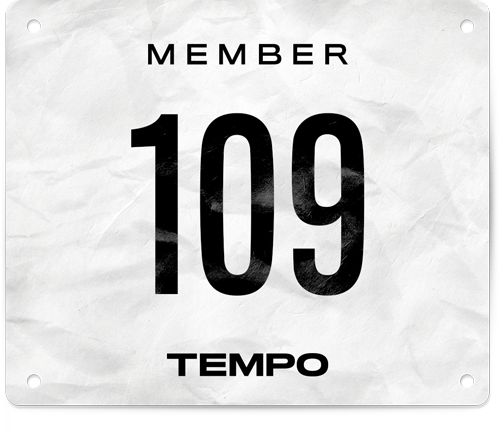Performance
Preparing for success with Ryan Gregson
Tips on performing at your best from the champ
Editor's Note: We're privileged to have one of the all-time greats of Australian athletics, Ryan Gregson contributing for us. Ryan will be exploring different aspects of performance, drawing on his own experience of over a decade at the top of his field.
Enjoy Ryan's first piece for TEMPO.
As athletes, we train hard and log miles week after week in order to be at our very best on race day. We spend so much time preparing, that it would only be fair that we always get the results we deserve, right? Wrong. I’ve sent prayers up to the Running Gods many times over the years and I can tell you for sure that they don’t care about your plan.
So - when praying to the Running Gods doesn’t work, what else can we do? Prepare.
It is important for all runners to work out their ideal preparation formula to give themselves the best chance of performing well on race day. We can’t ensure that we will have success, but we can give ourselves the best opportunity to do so. There are two main components that we need to control when preparing for a race – physical and mental.
Physical preparation includes how you can best use a taper to your advantage, and whether you use aids to have you feeling fresh and loose on race day such as massage, ice baths, and stretching. Tapering is a part of race preparation that I feel is very important, but is also very specific to the individual and hard to perfect every time. A race isn’t just like any old training session. We have to push ourselves to that next level. This means that come race day we need our energy levels to be fully stocked and be feeling fresh.
There are generally two ways to go about this in the lead up to a race – by running less, or running easier. I actually do both. A few days out from a race the duration of my runs will decrease, and so will the intensity. In general, I feel we need less of a taper than we think we do. We are used to running, so we don’t want to take too much running away in the last few days or else you can feel lethargic come race day. You purely want to reduce the stress just a bit, to ensure that there is no residual tiredness in your body, leaving you ready to go at 100% intensity when the time comes.
Massage and stretching are things that I like to add in the week of a race to work out any kinks in my body that have built up over the training period. I’m someone who likes to feel like I have plenty of range of motion before I run, so making sure I’m limber is an important part of my preparation to ensure I feel smooth on race day.
When it comes to preparation aspects such as a pre-race massage, meals, coffee, shake out, and warm up – my advice is to stick to a routine that is tried and tested. This takes any thought out of the equation, so when it comes to the days leading into a race and race day itself, you can fall back to a routine that you know works for you. This means that you don’t have to think about anything and can purely focus on relaxation.
Not only do we need to physically prepare for a race, but we need to be prepared mentally. If you’re a Type A personality who is a natural over-thinker, it’s probably best to try and limit thoughts about the race, whereas if you’re Type B and are usually pretty calm, thinking about the race may not bother you at all. Personally, I like to give myself an opportunity to think about the race during my pre-race shake out. I find too much thinking and analysing can lead to a clouded mind and a lack of natural instinct come race day, so I like to give myself maybe 10 minutes on race morning to have a clear plan of the race, and then I will switch off again to conserve mental energy.
In distance running, I think in general having this calmer and more relaxed approach is beneficial. For instance, if you’re doing a road race, we want to be able to keep our heart rate down and stay relaxed for as long as possible. I don’t see the point in ‘psyching up’, to only start focusing on staying relaxed once the gun goes. Being intense certainly may have benefits in the sprints where there is high pressure from the outset, however in distance running I believe staying relaxed in the lead up to a race will help to ensure you channel all your energy into performing well.
"If you’re doing a road race, we want to be able to keep our heart rate down and stay relaxed for as long as possible. I don’t see the point in ‘psyching up’, to only start focusing on staying relaxed once the gun goes."
Ryan Gregson
To assist in achieving this calm state pre-race, it’s really important to put things in perspective. Whether you’re about to race an Olympic final, the City2Surf, or a Parkrun, you have to put your upcoming race in the scheme of things – the sun will come up the next day. We so often place pressure on ourselves thinking that if we don’t achieve our goals, others will think that we are failures. What I have learnt is that you personally are the one that cares most about your result, while other people generally have plenty of things going on in their lives that they won’t give your good, bad, or indifferent result too much thought.
Also, in our sport, there is almost always another opportunity to redeem yourself in the not too distant future if things don’t pan out as expected. Some of my proudest moments in my athletics career have been the good results I’ve had immediately after bad results. In 2017 I ran 3:41 in Oslo and three days later ran 3:34 in Stockholm, and in 2018 I ran 3:39 in Zurich, and again ran 3:34 three days later in Berlin. After those bad races I gave myself about an hour to criticise myself where I went wrong, but after that I made sure I gave myself a chance physically and mentally to bounce back and make the most of the next opportunity that presented itself. Approaching races with the mentality that there is generally always going to be another opportunity gives us a chance to be in the moment and put everything into the job at hand, without wasting unnecessary nervous energy on negative thoughts about the consequences of our performance.
"Some of my proudest moments in my athletics career have been the good results I’ve had immediately after bad results. In 2017 I ran 3:41 in Oslo and three days later ran 3:34 in Stockholm, and in 2018 I ran 3:39 in Zurich, and again ran 3:34 three days later in Berlin."
Ryan Gregson
Racing with this weight of expectation off your shoulders can turn what may have previously been a daunting experience into a positive one. Hopefully an opportunity that you’re genuinely excited about to test yourself and see how fast you can go. You should always remember though, if it doesn’t work out, there’s always next time!


